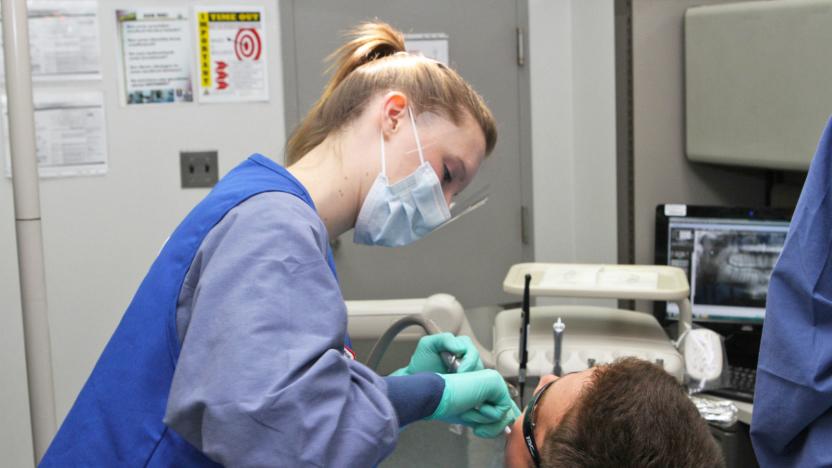filling
Latest

Regenerative tooth fillings could put an end to root canals
You really don't want a root canal, and not just because it's potentially painful. Emptying the tooth of the infected tissue at its heart potentially weakens it, since you can't grow that organic material back or put toxic fillings in its place. Researchers may have a solution, though. They've crafted fillings that get the tooth's own stem cells to regenerate and repair tissue. This doesn't mean that your pearly whites would return to normal, but the substance could heal the tooth enough to spare you a root canal or prevent fillings from going south.

'Painless' dental cavity procedure regrows tooth enamel
When a dentist says the word "cavity" a lot of people sweat thinking about painful injections and relentless drilling. But scientists in Britain have developed a new procedure dubbed EAER, or "Electrically Assisted Enhanced Remineralisation," that can repair a slightly decayed tooth before a deep cavity forms. The supposedly painless procedure involves cleaning (not drilling) the tooth of any signs of mild decay, then flushing it with minerals and stimulating it with an electric pulse. This pushes the minerals into the deepest part of the lesion and speeds up a naturally occurring process called "remineralization". This is where minerals in your saliva and some foods enter the tooth enamel and make it stronger.

Researchers hope tooth regeneration gel will reduce the need for fillings
We may still not have jetpacks or flying cars, but it looks like the 21st century might be about to get a bit more futuristic. As Discovery News reports, a study published in the ACS Nano journal is offering some fairly convincing evidence that a new type of hormone gel could potentially regenerate teeth and eliminate the need for fillings in at least some cases. According to the French scientists behind it, the gel has already managed to make cavities in mice "disappear" after only a month, and the peptide used in the gel, MSH, has also previously been shown to encourage bone regeneration. Of course, it will be a little while yet before your dentist puts down the drill -- the researchers say there still needs to be "several years" of clinical trials, and note that it likely won't replace fillings altogether (or prevent them).


